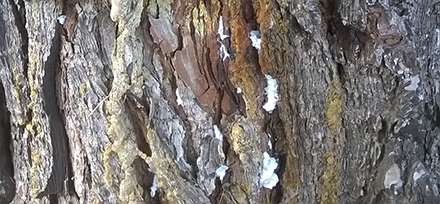The City of Tea Tree Gully in South Australia has notified the public of a serious outbreak of giant pine scale that has forced the Department of Primary Industries and Regions (PIRSA) to destroy hundreds of trees in Highbury and Hope Valley. Source: Yahoo News
Locals have been told that certain areas, including the popular Elliston Reserve, will be closed until 2024 while experts attempt to eradicate the pest from South Australia. Those who attempt to go in and remove vegetation from the restricted area face a maximum $5000 fine under the Plant Health Act.
The impact of the giant pine scale insect on our community is significant,” General Manager, City of Tree Gully Operations, Felicity Birch has said in a recent statement. “We understand that it’s confronting for locals to see these established trees be removed so quickly, but it was a necessary measure to protect further losses elsewhere.”
Australia has about two million hectares of sustainable, commercial plantation forestry, and Australia’s forest industries contribute around $24 billion to the economy every year.
Giant pine scale is considered a biohazard due to how destructive it is and how easily it can spread through infested plant material, or by latching on to humans and their clothes. According to Forestry South Australia, an infestation can only be fully eradicated by quarantining the area of infection and destroying the host trees.
Giant Pine Scale is an insect from the eastern Mediterranean region that sucks the sap from pine trees, and any plants from the pine family exclusively, slowly killing the plants. Infection is easy to spot because the tiny insects excrete what looks like white cotton or snow.
This pest has not been detected in South Australia since 2018 but has been found in some of Victoria after an outbreak so large that it could not be fully eradicated from the area.






